First, a note: Last week was banned book week, and I kept trying to get a post out about it, but with everything that’s been going on, it just didn’t happen. It worked out better that way, though, because I was going to write a two-part post, and I am excited to announce that the second part is being published next week on one of my favorite blogs, Indie Fixx. So keep an eye out next week for a link to my first-ever guest post: my “banned” recommendations for the Indie Fixx Book Club.
And now, today’s post:
When I became a parent, I never really thought about what books I would not want Nora to read. I thought about what sort of TV shows and movies, and how much of them, I wanted her to watch. I thought about the kind of music I would like to keep from her as long as possible. I thought about the kind of clothes I would not want her to wear. But books?
So many parents have a hard time just getting their kids to read, that I figured if they do it at all, isn’t that good enough? Thus, I didn’t give too much thought to the “no’s,” only the “yes’s.”
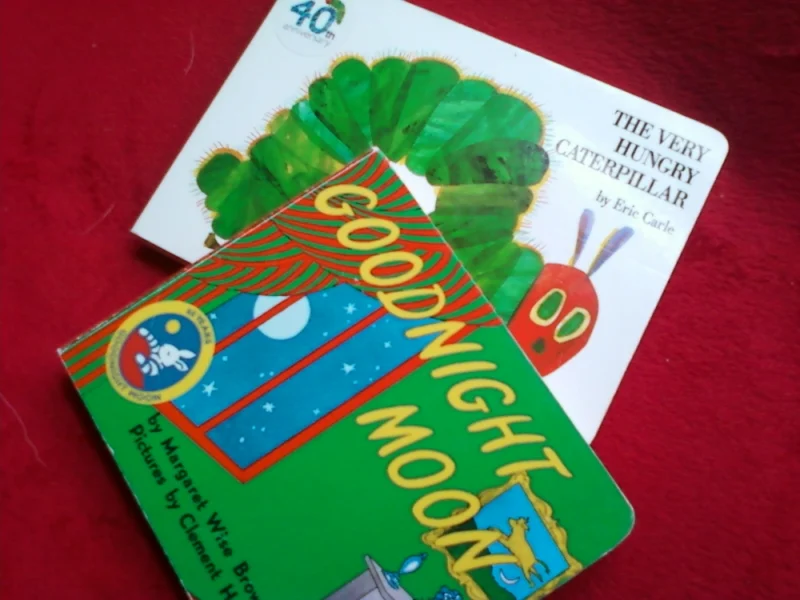
Yes, we will read Goodnight Moon. Yes, we will read The Very Hungry Caterpillar. Yes, to Dr. Seuss and Shel Silverstein.
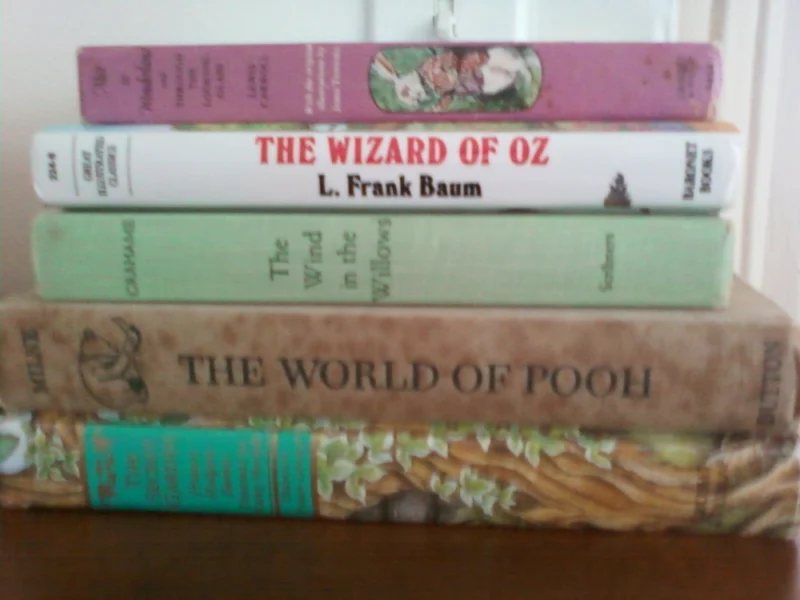
The World of Pooh, Through the Looking Glass, The Wizard of OZ, The Wind in The Willows, and The Secret Garden – all obligatory. Someday, I will give her my complete Babysitter’s Club collection, and on her eighth birthday, she will have the biggest surprise ever: three American Girl Dolls, tons of accessories, and the books that go with them. Yes, yes, yes.
As a child, I loved reading. I read anything and everything, and I want to do my best to encourage a similar love in my children.
So far, it seems to be working.
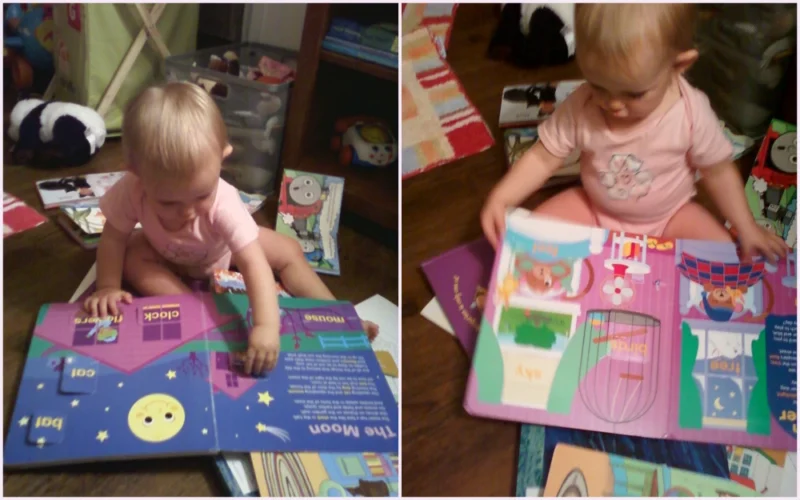
Nora is so into reading and books, it’s ridiculous. I think she would rather look at her books than play with most of her toys. (As a matter of fact, her room is pretty much always strewn with books like this.)
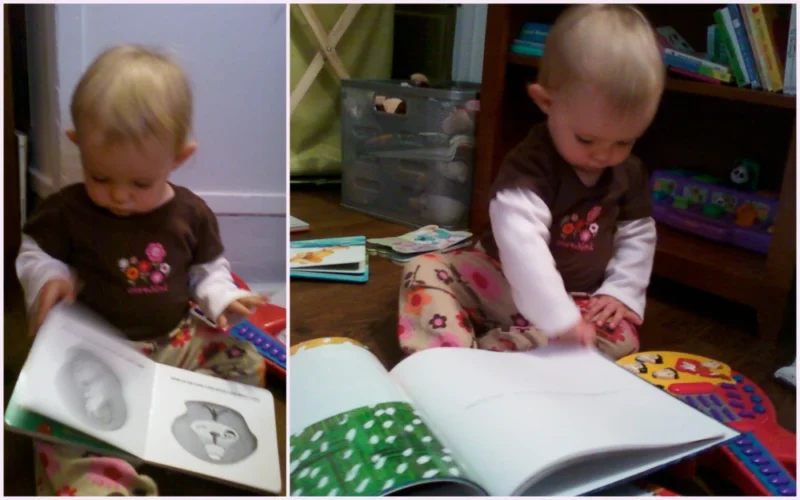
And so, I’ve been trying my best to acquire as many different books as possible. We asked everyone for books as gifts instead of toys. We’ve spent time at the library nearly every week since moving out here.
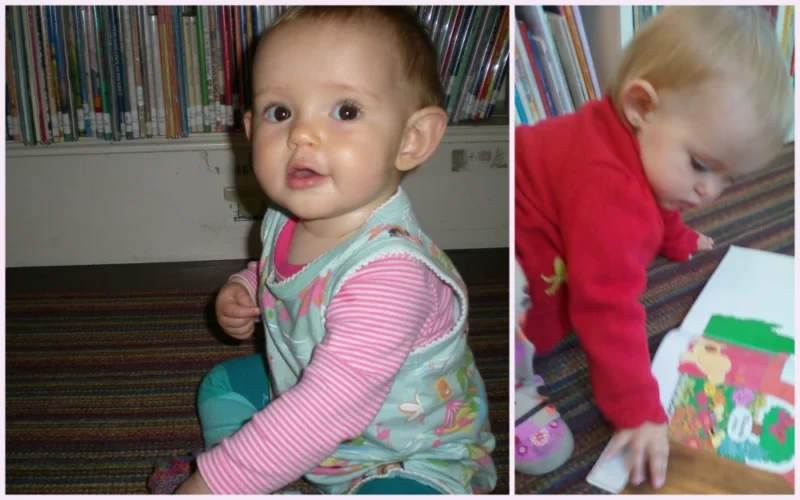
And, this summer I scoured garage sales and the take-it-or-leave-it for kid’s books. Which is how I came across my first book censorship conundrum.
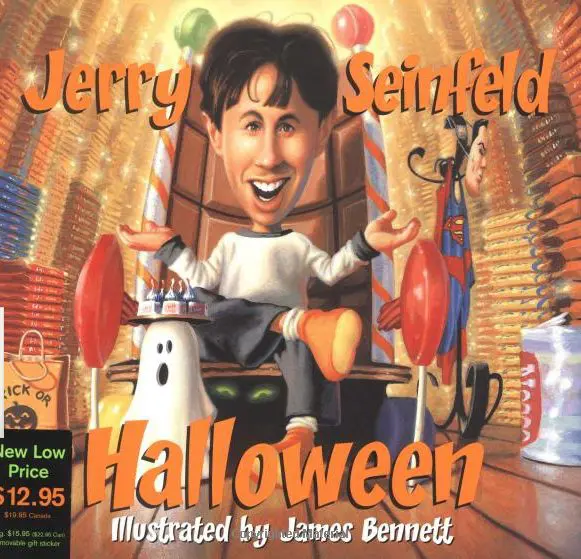
Random, right? It was in a giant stack of books I got for free. It was timely; Halloween is coming up. But then I started to pre-read it. And I didn’t like it. It’s negative, candy-centric, devoid of manners, and not exactly grown-up or healthy-eating friendly. So I was faced with, for the first time, the question of whether or not I should censor reading material.
Okay, I can be realistic – if I read it to Nora now, she would have no clue what was going on. She’s one; all she would really care about would be the pictures. But what about next year? And the year after? So, you know what I did…I took it right back to the take-it-or-leave it. Sorry Jerry Seinfeld, but my kid isn’t going to read your book.
And then Banned Book Week came along and I found myself thinking about that book, or any books, I would prefer Nora not to read, and the question of how and when book censorship is okay. Or is it never?
Not too long ago, the Motherload blog had a post about children’s books parents hate. It seems there’s a lot of consensus between parents about which books are hate-able: The Giving Tree, by Shel Silverstein, The Rainbow Fish, by Marcus Pfister, The Runaway Bunny by Margaret Wise Brown, and Love You Forever, by Robert Munsch are among the list. It was really interesting to read the comments by parents about the books they hate and whether or not they allow their children to read them. It was especially interesting when I read about ones that I had loved as a child. Love You Forever is an example of that; my great-grandparents gave it to me and I remember reading it over and over (and also thinking that it smelled good; yeah, I was a weird little kid) — but apparently many people find it creepy and think the mother is a stalker — something that never occurred to my child brain.
After reading the Motherload post and taking Jerry Seinfeld right back where he came from, I spent a little bit of time thinking about books. Like many things, I think it’s all about age. I understand the humor in Jerry’s book and if Nora were at an age where we could discuss his character’s behavior and its appropriateness, I might have kept it. But for little kids, who often take things at face value, it makes more sense to me to limit the exposure in the first place (since she wouldn’t be able to read below the surface). And in that way, it’s no different from my feelings on TV or movies, I guess. It also was an interesting lesson for me in what I will tolerate and what I won’t: I was thrilled to discover a copy of The Librarian of Basra: A True Story from Iraq, which discusses the horrible side effects of war, but not okay with her reading about a candy-crazed snarky little boy. And it also gave me pause for a second to think, if I don’t want her exposed to particular books before a particular age, what does that mean for schools and libraries?
Most books are challenged on behalf of children in schools and libraries
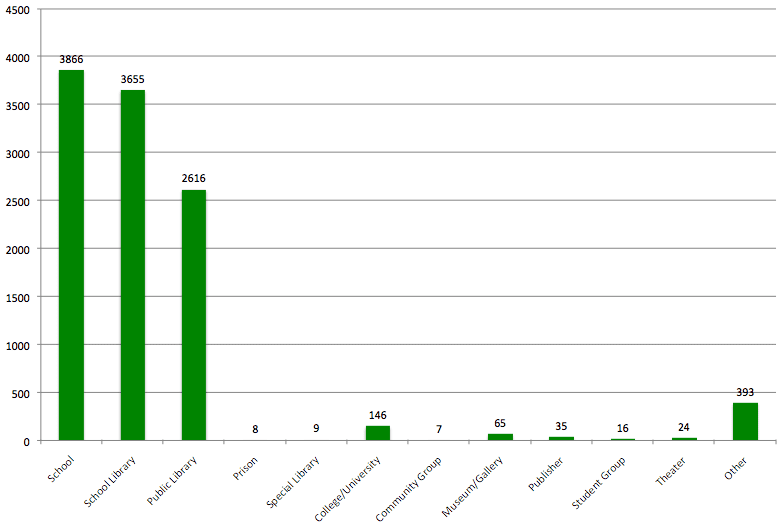
overwhelmingly by parents
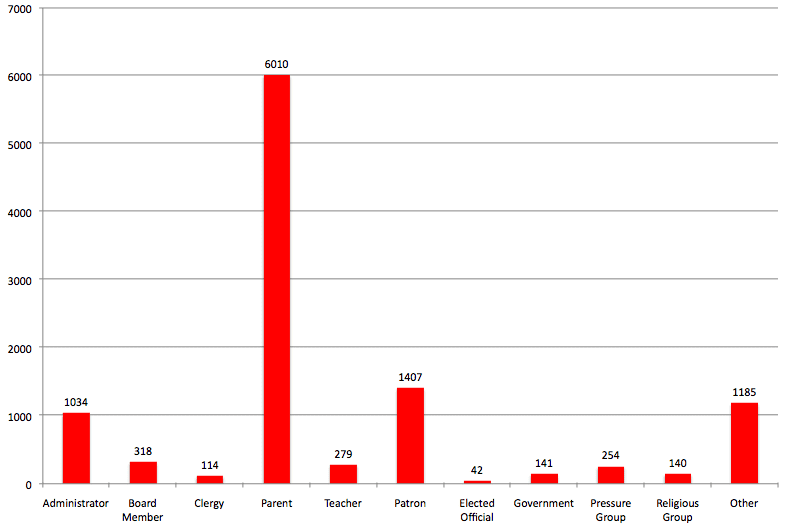
and mostly for sexual content or age appropriateness.
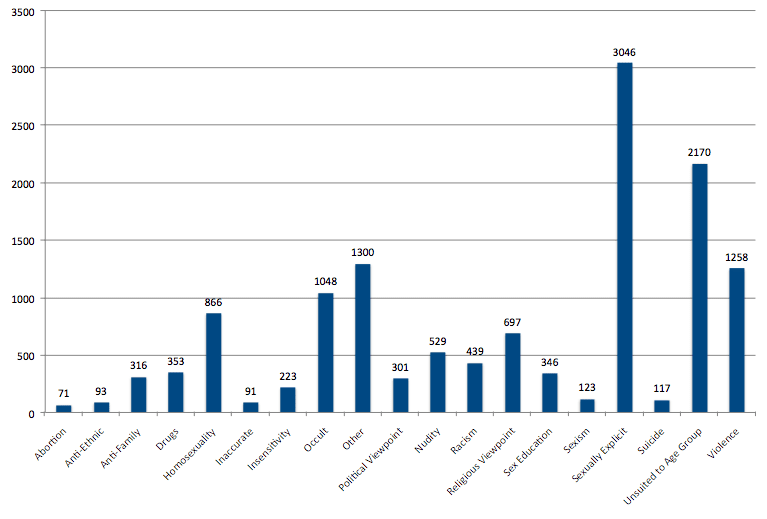
Graphs from the ALA, representing data from 1990-2009.
This question of where parental rights end and public information begins is a big part of what Banned Book Week is all about. It’s not saying that parents shouldn’t have the right to choose what their children read, but that they shouldn’t have the right to choose what other people’s children read. And I completely agree. Though I do think there are some books that probably no one should read (blatantly racist, homophobic, or encouraging of violence against others), it’s not really my right to make that choice for others or their children. I think it’s too much of a slippery slope — for me it might be What to Expect When You’re Expecting (worst pregnancy book ever), but for another person it might be books about magic and fantasy — so it’s better not to ban anything at all.
This is one thing that makes me stand apart from people who would challenge books — I would rather play an active role in Nora’s early library trips than have books I don’t like taken off the shelves for everyone. I didn’t throw Jerry away, I just removed him from our house. The other area in which I differ from the book ban-ers is the age at which I would let her choose her own books. By middle school, I was pretty much reading whatever I wanted (and I read a lot of questionable stuff), but by that point, I was able to understand writing as a vehicle for communication and the difference between fiction and reality, and right and wrong. I’m not sure at what age it will be for Nora, but sometime during middle school seems right. Around that time, I would rather just be present to discuss what she’s reading, and use it as a teaching tool, than keep controversial material completely hidden from her. I certainly couldn’t imagine getting a book removed from a senior English class – if my kid is almost old enough to vote, she better be able to think critically about a book that doesn’t mesh with our values.
After spending all that time thinking about banned books and what place censorship might have in our family, I’m interested in knowing how you feel about banned books. Are there any books you would keep or have kept away from your kids? What role should parents have in the selection of books in the classroom? Is Nora going to be completely deprived because I wouldn’t let her read Jerry Seinfeld’s Halloween?
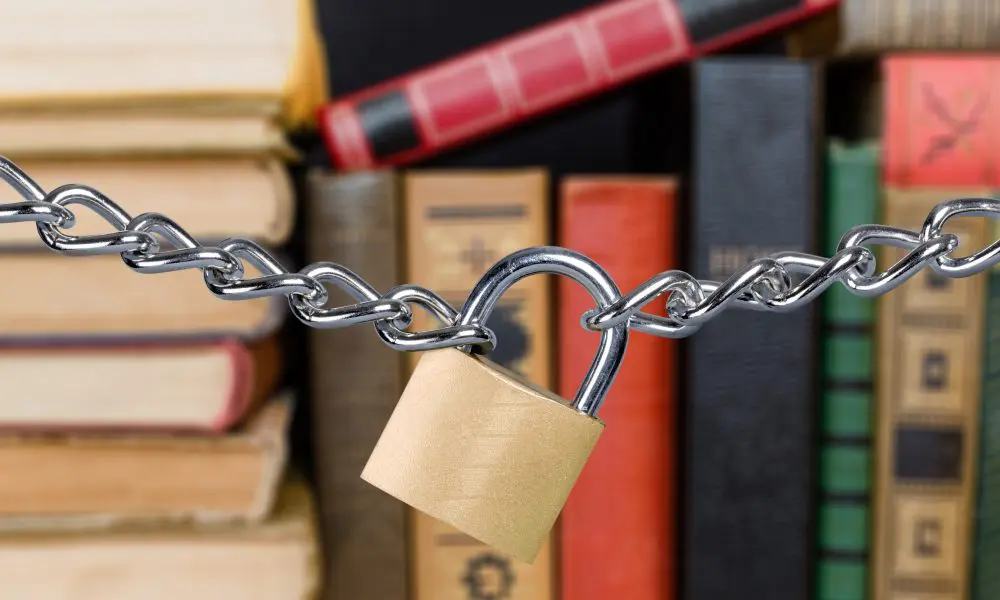
Leave a Reply